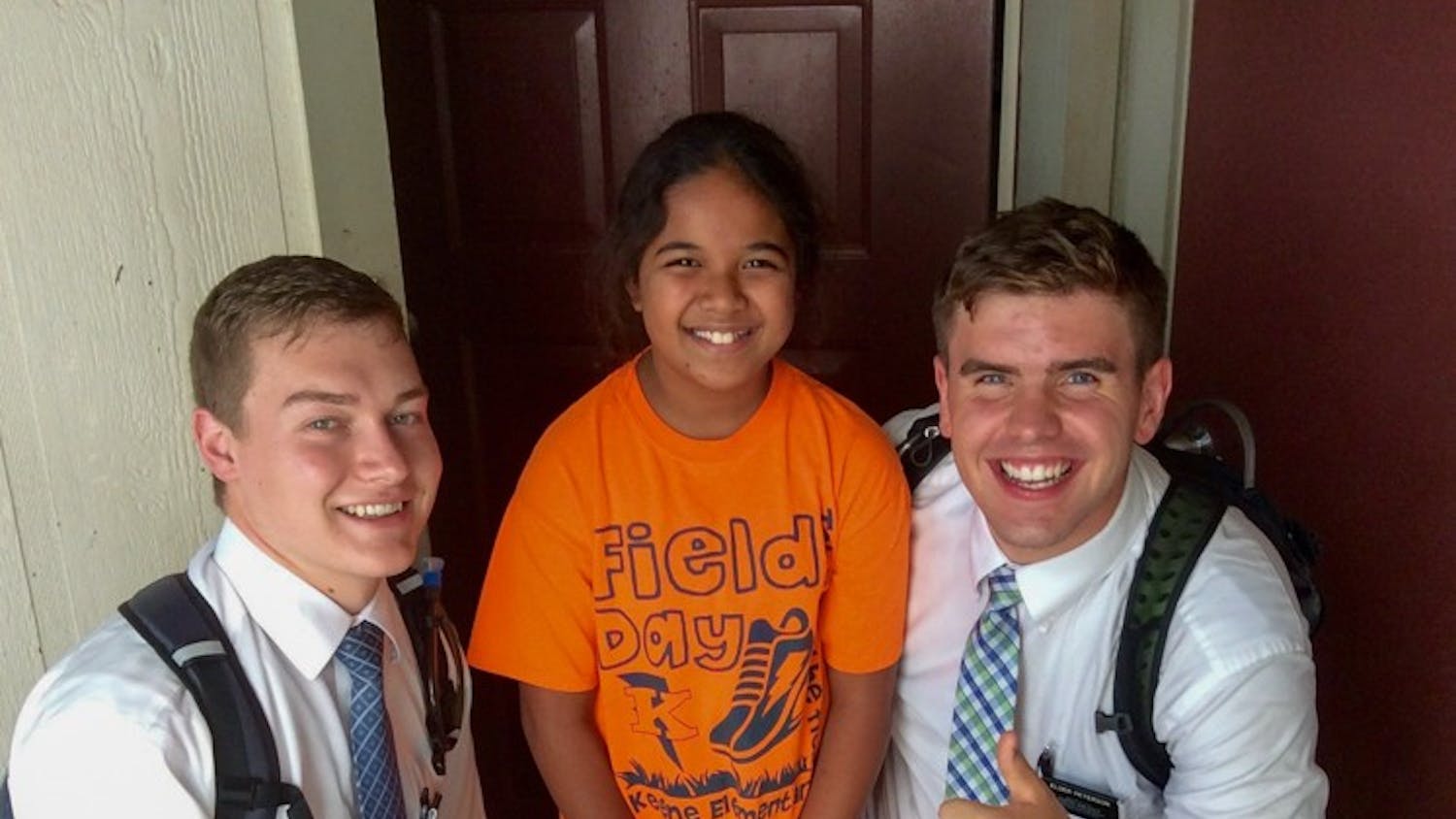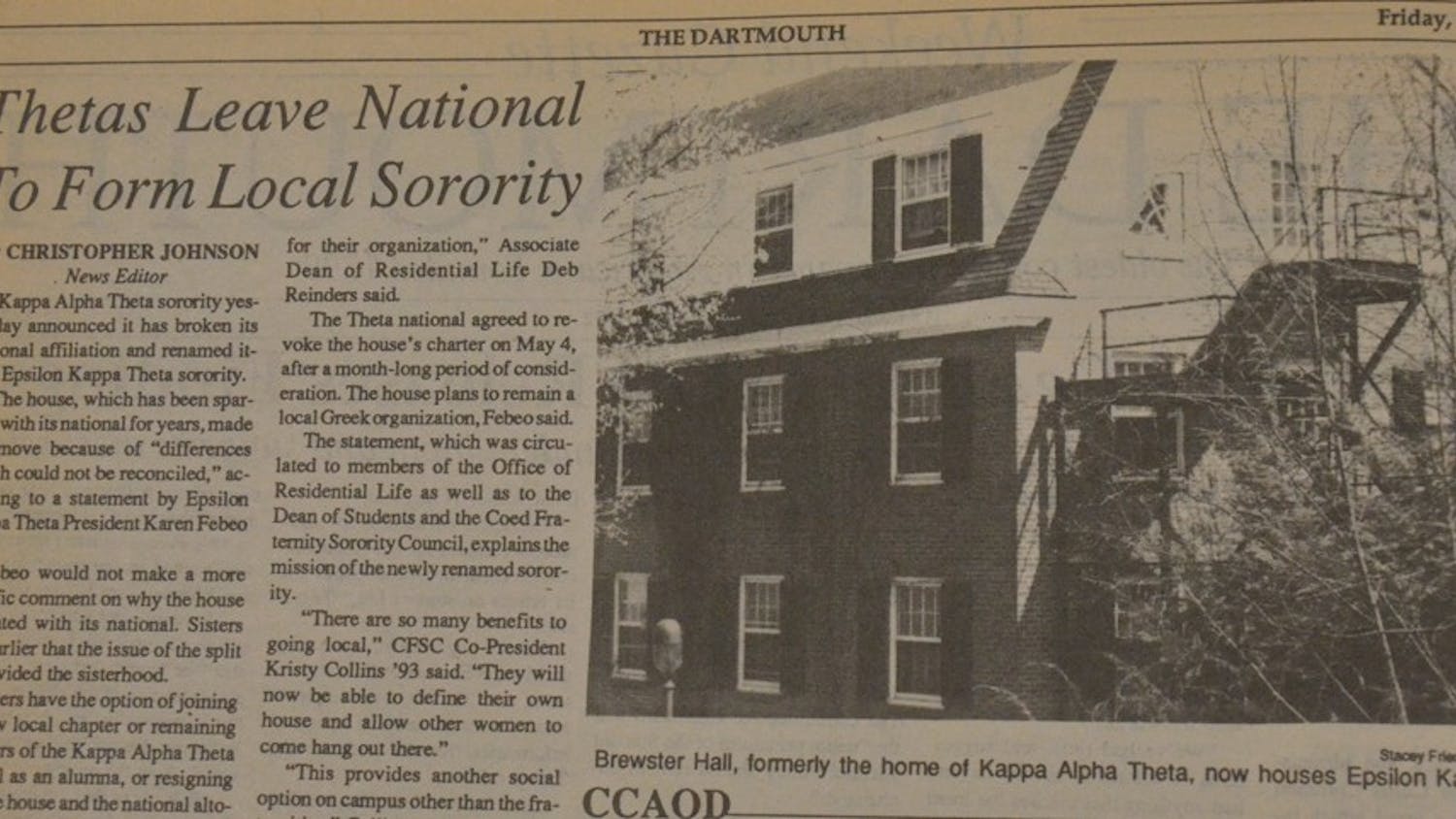In his two books “The Family: The Secret Fundamentalism at the Heart of American Power” and “C-Street: The Fundamentalist Threat to American Democracy,” English and creative writing professor Jeff Sharlet takes deep dives into the political influence of the Christian organization known as “The Fellowship” or “The Family” both within and beyond the U.S.
Recently adapted into a five-episode Netflix docuseries titled “The Family,” Sharlet’s shocking exploration of the entanglement of church and state focuses on high-profile politicians from all over the world who had personal connections to Doug Coe, the former head of the organization. In an interview with The Dartmouth, Sharlet discusses the Family, his experience investigating the organization, as well as the process of adapting his literary work into a new medium.
Could you tell me a little bit about how the Family’s theology is different from a more orthodox reading of the Bible?
JS: The main difference is that they’re radically reductionist. They’re not much interested in scripture and they don’t know it very well, except for a few of them ... They then developed this concentric rings theology. They came to the belief that there were sort of concentric rings of intimacy around Christ: that, for a few disciples, he gave them one message, the rest of the disciples got another message, and everybody else, the masses, got a third message. And again, this is at direct odds with most Christianity, which says that if you’re a believer, Christ is available to all of us. There’s no VIP in Christianity. But for them, it’s actually a theological commitment. And then the third point was what they came to call biblical capitals. And in that, they’re not alone. That idea started with them and a few others but has grown into a big cohort, unfortunately.
You talked about how the invisibility and privacy of the Family makes them more powerful. How does it do that?
JS: The beginning of the Family was this idea that we need a space for political and business leaders to come together, and I quote, to make decisions beyond the din of the vox populi — beyond the voice of the people. That is as explicitly anti-democratic as it gets. The idea is that there are discussions and there are deals that they want to have made, but it can’t be made if you’re accountable to democracy. I think this idea is tempting for a lot of kids with the Dartmouth ethos. Get elites, the best educated, the best and the brightest, and we’ll make decisions. We know what’s good for everybody else. That’s not democracy, but that’s what that privacy gives them.
How large would you say that the Family’s political influence in the U.S. is?
JS: How large? I don’t know what terms to define that with, I can tell you that a Rice University sociologist named D. Michael Lindsay, who himself is a conservative evangelical and friendly toward the Family, attempted to do a quantification of the Family’s power. He went and he surveyed 365, I think, Washington leaders and asked, “What are the influential religious organizations in Washington?” … And number one by far came out to be the Fellowship. Of course, the Catholic church is powerful, and APAC is powerful, and the NRA is powerful and organized labor still has a little bit of power, too. And a lot of organizations you’ve never heard of are also powerful. But there’s a difference between those organizations and the Family. One is that they’re registered as lobbyists, and that way, they’re accountable. You might not like the NRA, but if you want to know about the NRA, you can go and look at them. They’re public. That is the difference between them and the Family.
Where’s the money to run the Family coming from?
JS: Tracking this down through the tax documents is a big job. The Fellowship Foundation have on its books a relatively modest budget. It changes from year to year, usually around $20 million or something like that, which is not that much. A lot of that money comes from private donations. Oil and defense industries have really been their bulwark for most of their history. But the other form of financing is what they call the “man method.” The man method is otherwise known as “off-the-book,” and it is illegal. It’s a way of avoiding accountability. They have been held accountable before, in the 1970s. I went over years of tax records. Doug Coe, some years, would take a salary, always a very modest one. Other years, he apparently had no salary at all, and yet Coe lived very well and flew around the world in private jets. That’s the man method. The man method is: “I support you. You know what, I’m not gonna put this money through an organization. I think you’re doing great work. Would a gift of $50,000 help you do the great work you’re doing?”
What was the most difficult part of getting your book adapted?
JS: I didn’t even return Netflix’s phone calls for three months. I didn’t see how it was going to work. I could see how you could do a strict, straight-up, sort of frontline investigative documentary so that the art of it doesn’t matter, but I didn’t think that would actually get at the nature of the story. There are reasons why this story has been hiding in plain sight for a long time; it’s hard to tell. And it just wasn’t work I was interested in. But Netflix brought in this director, Jesse Moss, whose work I had seen in an earlier film called “The Overnighters,” which is a beautiful film. And that was important to me — that this was going to be a story. This was not going to be didactic. It was not going to be expository. And indeed, when you look at the series, one of the criticisms we’re receiving is, “This movie didn’t end with a clean takeaway.” And I say, “Right. Because that’s what documentary art really is.”
Do you still continue your research on the family? Do you have any lasting connections to the Family?
JS: I’m done with the work I had to do about it. What’s been pleasing to me is to see a number of other scholars and journalists take up the inquiry, which is what I’d always hoped. I was not the first person to report on it; we see it in the Pulitzer prize-winning reporting for the LA Times, and there were a couple of other things over the years. Time Magazine did something back in the 1970s. I’m not the first, and thankfully, I’m not the last. What’s been encouraging to me is to see really solid scholars like Kevin Kruse — a historian at Princeton and his book “One Nation Under God” on the ties between big corporations and fundamentalism and the shaping of America during the Cold War — who are digging up the work I did and taking it further. That’s how it’s supposed to work. So my research is done. I do hear from a lot of Family people because the series gets a lot of attention. Who we’re really hearing from right now, more than ever, more than with the books, is former members like Doug Hampton.
What do you think that the docuseries might be missing?
JS: What’s not included as much as I would’ve liked in the docuseries is the deeper history … We didn’t go back in the early days of the Family. This thing begins as a sort of an attempt to crush organized labor, and it does — it shapes America. That’s a big part of the story that we didn’t do as much of. Plus, Netflix is based in the States, and it’s always tough getting American viewers to care about what happens overseas. So we briefly tell stories from Russia or Romania and Uganda, and those are nowhere near the most horrific stories.
This interview has been edited and condensed for clarity and length.




